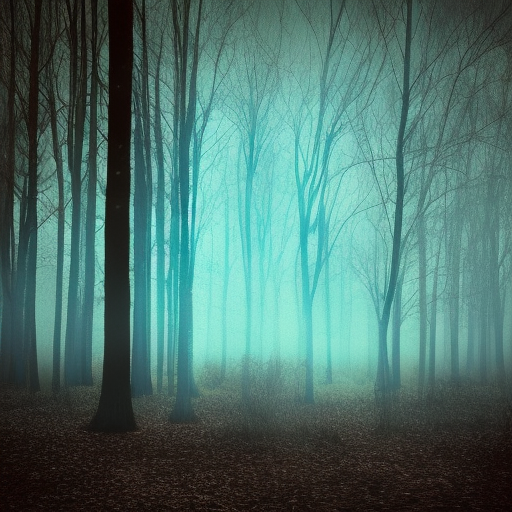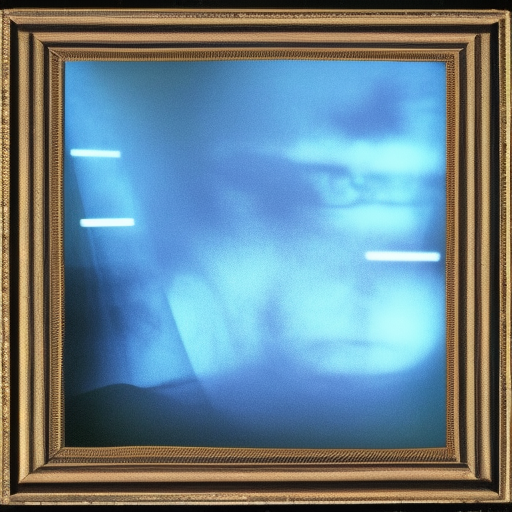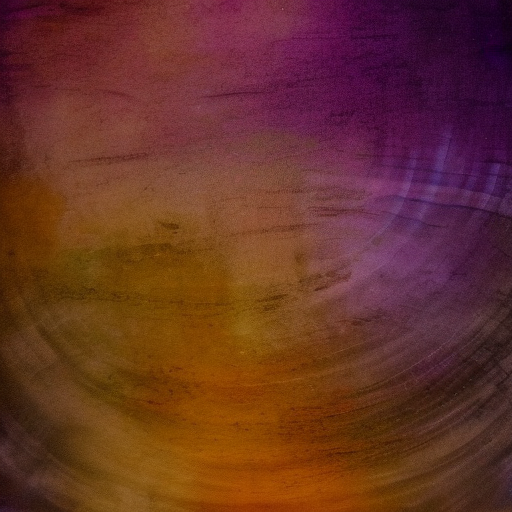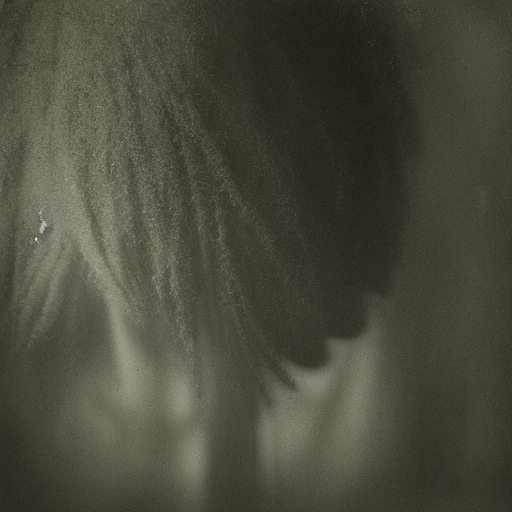What memories wake up when someone dies?
Over the last few months my body and mind have been processing and absorbing memories of my 91-year-old mother. She died this past February, virtually a year to the day after I started this thought echoes newsletter experiment. I decided to take a pause …
As one of five surviving daughters, Mom’s ripple effects — her echoes — linger in the liminal space as an era passes. They boomerang back to me like an ocean tide.
I feel like I’m floating offshore away from many of my sisters. My memories of growing up in the family home distant. When I moved away after college, I said good-bye to that home and the heavy expectations my Mother and hometown embodied for me.
As trustee I readied to focus on pent up activities of selling the 50+ year-old family home. But I underestimated the time each of us would need to process our grief and let memories wake up and be worked through. My other sisters hold different perspectives. Why shouldn’t they? We’re each different people. With different versions of our Mother over the years. She worried about each of us in different ways, at different times. And in the parent child reversal the happens later in life, we worried about her in different ways, at different times too.
How do memories wake up after someone dies? Especially when a family home, filled with memorabilia, embodies the decades of happy and painful memories. And not just for those who lived there, but for friends and family who visited over the years. How do we come to terms with our memories? What becomes of them? And how are they honored or recast?
how do memories wake up?
At a hospital in Wisconsin where my Mom was “actively dying” according to her medical records, we five daughters took turns staying with her round the clock for the better part of a week. The youngest there by herself without the support of her sisters during the most difficult initial hospital time. It took hours before the DNR (Do Not Resuscitate) was activated, while I slept on the west coast not seeing the dozens of texts on my phone downstairs. We daughters started flying in from all over the country. None of us lived in Brookfield (a suburb of Milwaukee) with Mom. And she persistently refused to move, wanting to spend her remaining days in the 5-bedroom home she and Dad built back in the late 1960s in what had become the mausoleum of my youth.
The night I arrived I volunteered for the overnight shift, I crunched-up in a sleeper chair listening to Mom’s belabored breathing. The last time we slept in the same room was in 2007 in Rome. We stayed in a little hotel at the top of the Spanish Steps. Mom would climb up and down all 92 of them every day for her exercise.
She was 76. We took a short nap once we arrived at the hotel in separate twin beds. As I laid down on my side, facing the doorway with my back to her, I felt a sprinkle of water. She’d thrown holy water on her no longer Catholic daughter, just in case. We laughed. A tired, jet-lagged, agreeing to disagree laugh. Haven’t thought of that memory in years.
Neuroscience has not been able to isolate memory in the brain to one area. A brain region can be said to be responsible for a certain memory, but no location can be isolated within that region.
One idea is that a “memory is stored in more than one place in the brain. The visual part might be stored in one area, and the auditory part might be stored in another. The result is a whole brain memory that relies on inter-brain communication to access.”
Walking through my childhood home after the funeral triggered plenty of sensory fragments waking up different memories.
The touch of the cool wood of the sliding door closing between the kitchen and the dining room evoked images of Mom and Dad slipping behind closed doors to share their day before dinner.
The smell of blue chalk on a pool cue tip. When I blew the excess off as I played pool by myself, I remembered how Dad taught me.
The taste of chocolate chip cookies I learned to make in the ‘70s with butter versus margarine when I went through Mom’s kitchen appliances and tools and saw the old mix-master and cookie sheets.
The sight of my childhood built-in desk with shelves to the ceiling in my bedroom. As the eldest I was given the privilege of choosing first. My room wasn’t the biggest and didn’t have the best views, but I was enthralled by having my own writing desk where I’d do homework and write in my diary late into the night. A ritual that would capture my imagination decades later when re-reading my first diary entry at age ten when I moved into that bedroom.
The sound of thunderstorms rolling through the neighborhood this spring — one one-thousand, two one-thousand, three one-thousand before the crackle of lightning followed by a memory of giggles and more counting.
“Memory is stored in more than one place in the brain.”
Decades ago when reading The Holographic Universe, the concept of small portions of a memory holding the whole memory like a holographic image does fascinated me. How cool is that? I’ve always been curious about how the mind works. Curiosity, one of many things I inherited from my mother.
Holographic memory is a theory of how our memories are stored. As with holography the image can be broken into pieces and each piece can build the whole image. With memory, fragments can conjure up the rest of the memory. Different senses engage different ways into a short video loop we can play over and over in our mind until we press pause or are interrupted.
Small portions of a memory, I imagine holographic shards of childhood memory. Sharp. Razor sharp. A scene seeps into my consciousness of me in 4th Grade. My best friend pointing to my black framed cat-eye glasses and laughing. And of course, I mimicked her. She cried. Our mothers made us apologize to each other.
That blink of an image brings back an emotional flooding. I’m snapped back in time to my St. John Vianney (SJV) classroom. Not sure if before or after my little sister Meg’s death. Think after because my white confirmation dress photos showed me with and without those black cat-eye glasses.
I used to think holographic as image only, but not now. The concept of a holographic memory means a small memory fragment can conjure up the rest of the memory with all our senses. I can't smell the classroom at SJV. But if I linger and look around in my mind’s eye I can conjure the smell of chalk, rubber, pencil shavings, and sweat from PE without showers.
Lots of memories flood in — Mom hugging me before a date rubbing my back to check if I had a bra on. No saying Hail Marys before a date like she did. Growing up in a ‘70s conservative household, I was a little renegade.
The Holographic Universe by Michael Talbot
“This was precisely the feature that got Pribram so excited, for it offered at last a way of understanding how memories could be distributed rather than localized in the brain. If it was possible for every portion of a piece of holographic film to contain all the information necessary to create a whole image, then it seemed equally possible for every part of the brain to contain all of the information necessary to recall a whole memory.”
how are memories honored or recast?
Yet another perspective on our memories as holographic applies to our entire lives. For a moment, imagine your mind as holographic, where fragments conjure up a whole experience.
Dr. Milton Erickson, a famous hypnotherapist, used a different therapy for his patients. Instead of focusing on the past he would have people envision a future without whatever problem they were encountering. The past and future in the mind are simply holographic reflections available in the present. Erickson treated the person in front of him as a holographic reflection of the entirety of their existence.
While at the house after the funeral for my return visit to sifting through memorabilia, I played pool every night. The pool table where I learned technique from my Dad and Gertie our cleaning lady. I remember blowing the excess chalk off decades before as I repeated the ritual now. I scanned the balls on the table deciding my strategy — always favoring solids over stripes. A dozen taxidermy heads mounted on the stone walls of the game room watching me. Moose. Caribou. Mountain Sheep. Antelope.
Dad would coach me to be patient and glide the pool cue resting on the fleshy V part of my hand several times taking careful aim with long, slow practice shots — back and forth, back and forth. He made me start with my index finger and thumb in an okay sign to keep the pool cue from wildly jumping around. I felt him concentrating on my movements, keen on developing my skill. These rare moments Dad spent with me learning pool reinforces the importance of spending one-on-one time with my daughters, when they were little and as adults. Doesn’t matter so much what you spend time doing, it’s the spending time part that counts.
Gertie modeled her techniques — patient, focused. I’d watch her practice when she finished cleaning early. Practice time, extra compensation for the drive to the suburbs . She didn't do it every week only before tournaments.
Saying goodbye to the gameroom is saying goodbye to Gertie too. She died a month before mom. She was 80-something. She taught me how to put a bit of English (back spin) by aiming toward the bottom of the cue ball snapping hard so the cue ball wouldn’t scratch by following the hit ball into a pocket. I loved how it would stop in place dramatically fast. I still smile when I pull that shot off and think of Gertie.
“Memory is stored in more than one place in the brain.”
When I hear the sound of thunderstorms rumbling in the distance, I’m instantly back in Brookfield. Low rumble, feel-it-in-my-bones rumble — something’s coming. A storm’s coming. The sight of the bruise-blue thunderstorm clouds through the leaves of an oak tree wooded backyard bringing sheets of rain slapping against the patio while I do my homework after all were in bed. I wonder if my other sisters did that too on other nights. The air smells of freshness. Deep inhale. Close my eyes. Did Mom do that? Or Lila, her mother? Or Margaret, Dad’s mother?
Part of my brain would continue with homework (English essay, math, chemistry) and part was on alert waiting for the wind to ramp up. It starts as a breeze coming through the screen kissing my cheek.
While doing homework and waiting for the storm was I thinking about the future? Or was I just doing homework thinking about my high school drama ecosystem? Probably the latter. I had no idea then I’d be back decades later to help get the family home ready to sell — my memory fragments circulating around the pool table in the air around me.
Last night while falling asleep, I thought of closing the door of my childhood home for the last time. There's a distinctive thud the front door makes. I don't know what kind of wood the 10 foot solid wood door is made of with all its square panels. The handle, an antique gold suburban swoop, has a tongue you press down.
Often to open requires my foot to assist pushing through the stickiness of the heavy doors. A peeling apart, a release of suction and a bit of air releasing like a pressure chamber decompressing. Like the house gets to breathe a bit.
I imagine the sound of closing the door behind me. There's a choice to have the doors only slightly touch to close if you're going to get the mail at the top oof the long driveway and return right away. But if you want to make sure it's secure, you reach around and make sure the little button on the inside is pushed in to lock the door, slam it, pull hard to make sure it's closed all the way. Then test it.
That's if you leave for a long time, like when I snuck out of the house at night in 4th grade or 6th grade. Sometime after my little sister Meg died. I met friends in a farmers field (now a nearby neighborhood subdivision) to drink Coke and eat Oreos. I don’t remember being combative, only testing boundaries.
Pivotal moment in my childhood. Oblivious to the fear it brought to my parents. Incapable of fathoming something bad happening to a second child after they’d lost one to cancer and how worried they must have been.
I got caught with a note I left for my girlfriend. Grounded after admitted to the lie about it only being a story reworked on for school. No more sports. Never joined a team again after that. Always wondered in the male-dominated corporate culture I worked in for over thirty-years, if I’d participated in sports, things might have been different. Being one of the only females, sports experience would have created more shared experience. Maybe.
“The past and future in the mind are simply holographic reflections available in the present.”
When friends keep asking me how I’m doing, how I’m coming to terms with my memories and grief. As I reflect, I find the umph behind my persistence and focus to prepare the house for sale and close the estate as my channeling anger. My anger at Mom over having to spend so much time on her estate activities that could've been started decades ago. Not all the family memorabilia (although there was plenty of room for thinning there too), but from when Mom closed down Dad’s construction business when Dad died in the mid-1980s.
All that office furniture and supplies gathering dust and flooded periodically over the decades in the basement. The firebox file cabinet that took four grown men to bring upstairs on a handcart. A cousin’s friend came by for a 12’ Panama sailfish Dad caught and sweated their way to inch it up the basement stairs. The Steelcase office chairs and 200 pound 1970 copier, the 13” x 18” ledger books with carbon paper copies of balance sheets. The adding machines. The typewriters.
Toward the end with Mom during our weekly FaceTime calls, every so often, not at the exact moment, but sometime during our calls I’d have a fleeting thought, a whisper of “this may be the last time.” After months its presence would linger and whisk away into the shadows. Still there, but hibernating, resting. Then out she’d come again.
Pressure builds while trying to hold the space for my sisters to process their grief, like holding your breath under water, you can only do it for so long before you drowned. But memories leak, they dissipate. As Mom’s personal belongings are disbursed, the hold the house has will be replaced by the photos and movies since 1967 when the structure started keeping track of the comings and goings of a young, then growing family. Generations running up and down the stairs, and round and round between all the rooms. Collecting stories.
At happy hour the day after Mom died, I asked one of my sister’s at sunset while sitting in the steel blue with brown pinstriped stuffed chairs by the living room window Mom and Dad used to confab before dinner in — if she felt the transition of an era with Mom's presence still in the negative space around us quiet, giving us space. I can’t remember her response. I was lost in my own thoughts and feeling Mom’s presence in the liminal space. And our shared silence. Later that night, I played pool and solitaire (Queen’s high) then went for a frigid walk. I walked under a full moon Mom and I both loved.
Mom’s still here in the estate activities. But after the anger dust subsides — and I come out of the water from treading so long, my memories of Mom will be held in photos and movies and her grand- and great-grandchildren. I’ll go back to sharing clips with my sisters and extended family.
Closing the door on my childhood memories – like they still hover in the house structure — in the walls and nooks and crannies. No more memorabilia physically there. Only a house made of wood and stone on a wooded lot. And the memory of saying goodbye to the taxidermy heads that surround me while playing pool and closing the front door for the last time will forever be triggered by blue chalk and thunderstorms.
LEAVE YOUR COMMENTS BELOW.
How have you processed your memories after someone close to you has died?
Please leave a comment below and if you enjoyed this post, I invite you to subscribe to my thought echoes newsletter.





